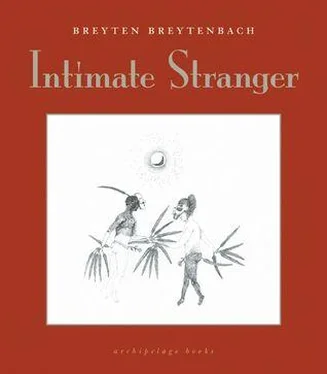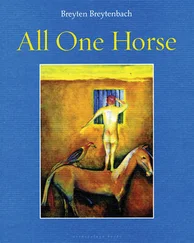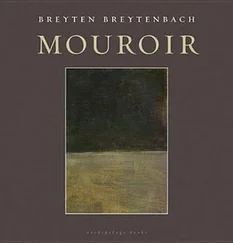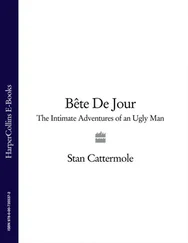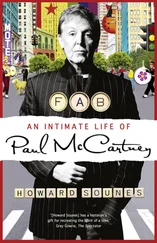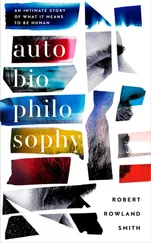To start from the distinct and tangible and attain full-blown emptiness — that is not within reach of the beginner.
Huang Pin-Hung
There is always the moment of going. All too soon. Rain moved in from the sea — or wherever rain comes from in these parts — the tops of the tall challenges to the force of gravity, built by man in steel and glass and chrome, reaching for the sky, are wreathed in invisibility, the trees on the square below our apartment house are spent so that one can see the paved red walkways shining wet, and hear a dog barking. Now is the hour; it is time to move on. And as ever, before leaving on a long journey, one wants to drop some advice, some reminders in order not to be forgotten, the blown leaves one used as hand-maps to dreams, a few left-over insights. .
1. Emptiness or Void promotes interaction, transaction, transmutation even, between Heaven and Earth, and thus between Space and Time. Time may be seen as the actualization of vital space. Emptiness introduces a discontinuance into the process and so doing assures rhythm and breathing. Time sucked into breath becomes space. The only way we can live with this Time /Space dichotomy is by having the “empty heart” ( hsü-hsin ). In this fashion — the way, too, of being in the right receptive posture, and with neither interests nor judgments nor even expectations — we can interiorize, perhaps by imitation, the processes of mutation. This play and interplay of empty /full will modify the meaning of the reach of your words (or brushstrokes), and impart to the writing (or painting) its own consciousness or ‘image.’ (Remember — ‘image’ is the anagram of magie , ‘magic.’) And so the relationship between writer /reader and the world mediated by the work — this breathed unit of timed space — will be changed. There will be interaction between the “inner feeling” and the “exterior landscape.” Try to suscitate the void needed for movement by deleting the subject, the I. (Shehe is a dead squirrel at the best of times.) It is not unlike sucking. The resultant emptiness will evoke other absences and create further resonance: you could mistake this movement of emptiness for ‘thinking.’ By being rubbed out or “underheard,” the subject interiorizes the exterior. Other becomes I. (Hello, Dolly. .) Through empty I the landscape comes into the writing. Writing becomes instant land scaping itself. (And landscape is memory, and memory is passage. . or resistance.)
2. Be aware of things within themselves, of words also outside themselves, of surfaces, the laws and by-laws and in-laws of meaning and how to transgress these, the face of the Real, movement, the invisible and the void pulsating below the surface, birth and death and other cycles and bicycles, writing as boat in which you row at night through the cornfields of crackling stars, the relationship between writer and writing and writer and reader and writing and history and the seen and the said. . Why? Because you don’t want to die an idiot, your drool will sully the sheets; because it is one of writing’s functions to raise consciousness the way one raises chickens to have eggs in the house (apart from also exorcizing pain and dulling the sharp cut of knowing); because transformation of self and of thing and of context — ‘writing’ is finally the presumptuous business of creating the existing — is predicated upon a mastery of the components and the interactions among these; because this is what the reader hungers for and recognizes as something that. . works , that sounds right . How so? How now, multi-hued cow? Awareness is to be dancing to a tune of meaning, memory, forgetting, invention. It is about movement — becoming other, shifting perspectives, making the landscape shake. It is to be movement . But also the reassurance of repeating the known steps to cover old frozen ground with the sounds of a new sweetness. It has to do with camouflage — hiding in the black light of writing, feinting being, making false bottoms, weaving to blend with the background, catching a you with the word, shifting the pea under the cup. It is about disguising a mountain in the metaphor and making of the writing a mask and a cardinal frock to dance and die in the shadow of that mountain. Awareness is about elimination and displacement — not only recognizing live from dead material, but knowing too that ‘leaving out’ is a way of situating what’s left in, of entering upon a dialogue with the absent, of saying and showing that the absent is in the present, of having the shadow of the concept peering through the hole burnt by the word. It has to do with autonomy — the thingness of text and its parallel life unlinked from the personal diary. And texture: to have appearance run over the surface through color and glitter. What you see is what you get. Word-stones are the washed-up measure of the dance, irrespective of the ‘meanings’ they may carry. Play with the colors and the constituent parts of words and phrases, make patterns and cross-references and riffs, let them weigh (in) with their own existence — this, all together, will be your texture. The taste of writing is in the texture. The skin is the surface of eternity. Through texture is awareness awakened and bonded. And by striking the jarring note, by rubbing dulled expectations the other or ‘wrong’ way, you can make of awareness the line of living the present, of moving in the possible tense where dream and reality merge dynamically.
3. Writing is not an art form, it is a life discipline. Write from the totality of your being, not only from the confessional or the ache of unrequited love. It must as much come from the loins as it emerges from memory (this is surely a tautology!). Love is not a technique, it is a secret. Explore that secret continent creatively and assiduously. Change it; allow yourself to be changed. Truth and falsehood have nothing to do with fact. A fact is but a finished act. Or a fucked one. The fact is that some act as if fattened by fucking. Writing is the intelligent but unbiased heart living in its own beating. The only way to gain detachment, also from that heart , is to remain intimately involved with its ebb and its flow.
4. Traveling is a moment of creation. By moving you make . The identity is crystallized or re-configured by confrontation and by change; you hold the mirror up as compass and the Other is flushed out or seen in a new light; the point of view shifts; you bring something more to the landscape (if only your shadow); you rewrite the world. Because you are not only crossing over into the unknown — you are also unraveling the line of (your)self and singing the topography. And memory then becomes a place of resonance, a gland secreting the digestive fluids of comprehension. You are living perpetual change against a backdrop of the unchanging. You continue journeying to keep one step ahead of death. But it is through traveling that you ultimately ripen for death, when your shadow comes to sit on your lap. You will die from having eaten too much time — and then you will be time. (There’s a time for everything. .) You have to empty the mountain first, though. Wisdom is when you gradually discover (or uncover, from emptying the mountain) what you’d known all along.
5. Rhythm, repetition, making patterns — these are not only important devices for shaping the strange and abstract instrument /object we call a poem or a story, but they are craved as well because of our primordial need for reassurance, the sense of security we get from moving over the known. A mystery doesn’t lose power in revisiting. Writing is not just to know, it is also to console. We need to be reminded that we are part of the obscure rhythm of birth and decay. It is the humming that matters.
Читать дальше
